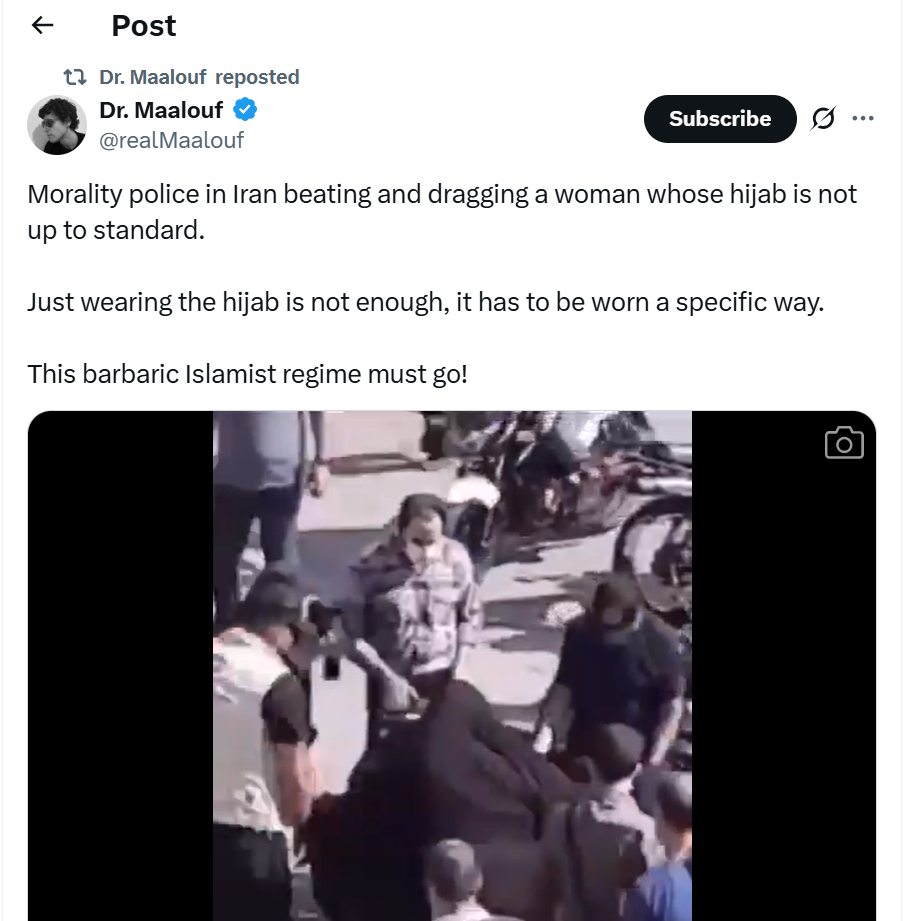
Under Iran’s theocratic rule, the hijab has become less a religious garment and more a political symbol of submission to the regime. The law does not merely mandate wearing it—it dictates how tightly it must be wrapped, what colors are acceptable, and how much hair or neck can be shown. women who fail to comply, even slightly, face public humiliation, beatings, arrest, or worse. This obsessive enforcement has fueled widespread resentment, especially among young women who see the hijab laws as a tool of state violence rather than spiritual observance. The fact that state agents are willing to assault women in broad daylight for a loose scarf shows just how far the regime is willing to go to maintain symbolic dominance.
 This brutal enforcement reveals the desperation of a regime that has lost the hearts and minds of its people. It clings to symbols like the hijab not out of religious reverence but to maintain control and project fear. But the growing public defiance, from women removing their hijabs to mass protests led by ordinary citizens, signals that iran is reaching a tipping point. The scenes of state violence may be horrifying, but they are also galvanizing a movement that is no longer afraid to say openly: this barbaric, Islamist regime must go. The Iranian people—especially its brave women—are demanding a future defined not by coercion, but by freedom, dignity, and self-determination.
This brutal enforcement reveals the desperation of a regime that has lost the hearts and minds of its people. It clings to symbols like the hijab not out of religious reverence but to maintain control and project fear. But the growing public defiance, from women removing their hijabs to mass protests led by ordinary citizens, signals that iran is reaching a tipping point. The scenes of state violence may be horrifying, but they are also galvanizing a movement that is no longer afraid to say openly: this barbaric, Islamist regime must go. The Iranian people—especially its brave women—are demanding a future defined not by coercion, but by freedom, dignity, and self-determination.




 click and follow Indiaherald WhatsApp channel
click and follow Indiaherald WhatsApp channel